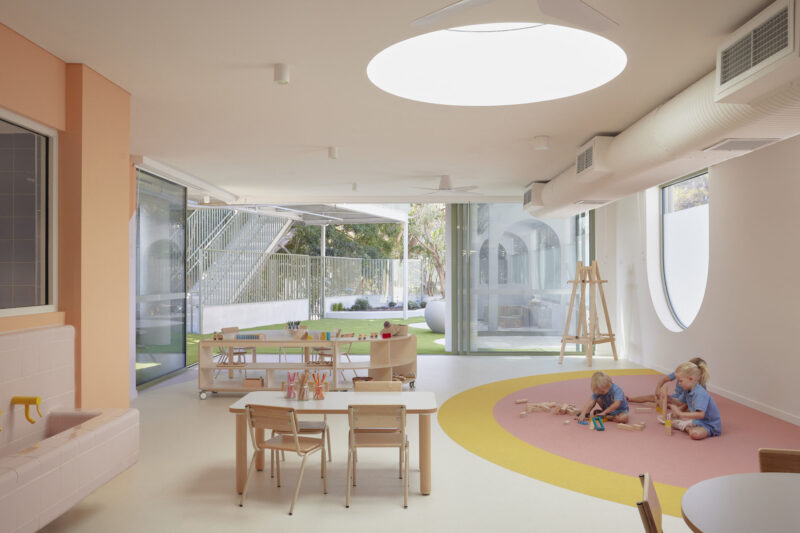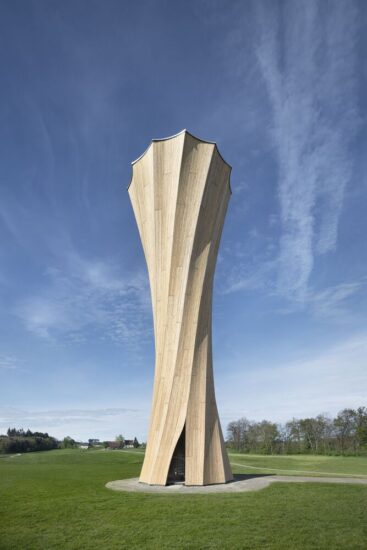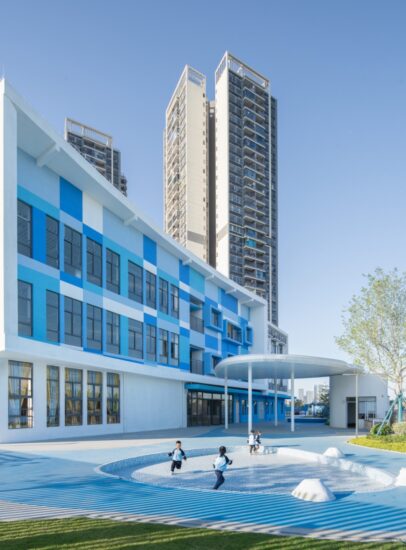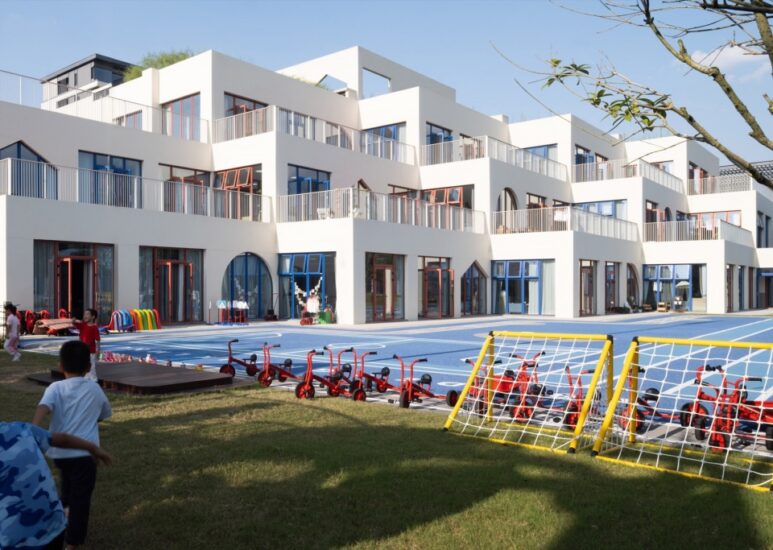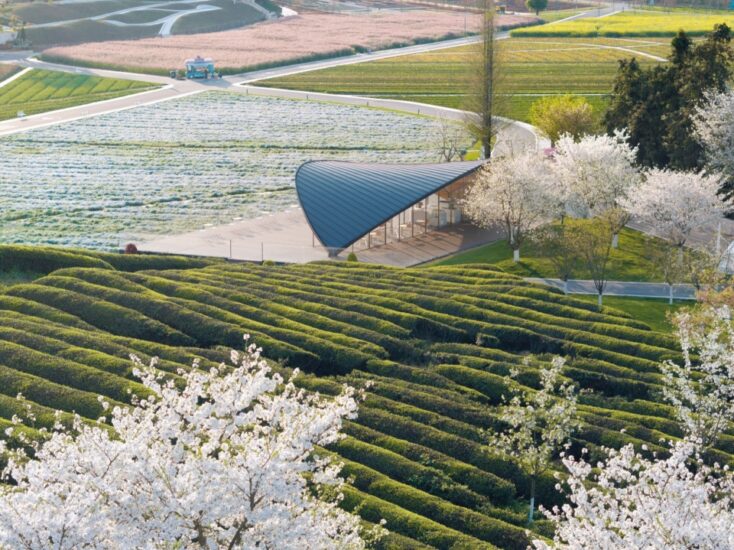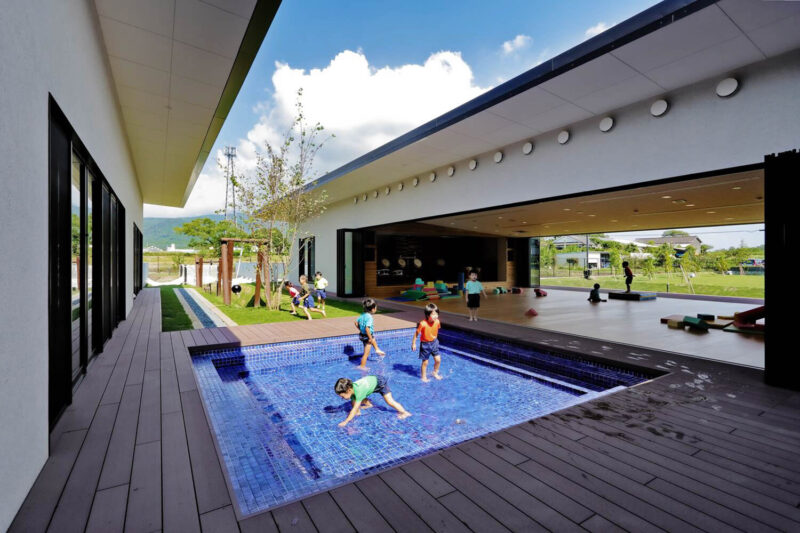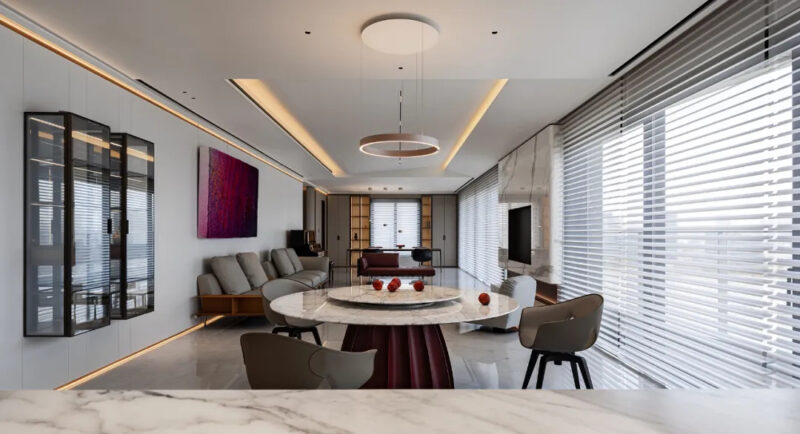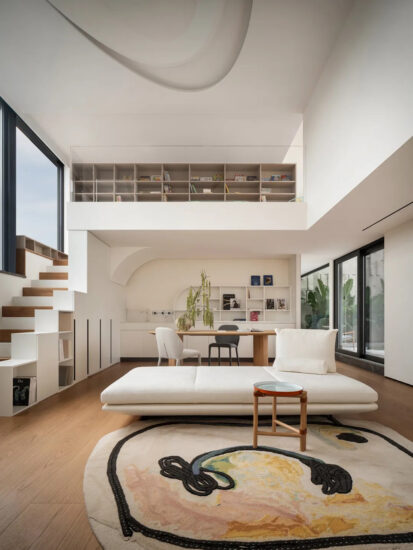Yanggu市位于韩国东北部崎岖不平的郊区,拥有原始的自然地形,但讽刺的是由于它靠近三八线前线,导致城镇化的发展受到了阻碍。当韩国发展成熟为晚期资本主义社会时,这些地方在持续不断地吸引着那些寻求缓解都市生活压力的韩国人。
Yanggu, located in the rugged northeastern countryside of South Korea, has a pristine natural landscape, ironically because its closeness to the front lines of the Korean War discourages urban development. It is regions like these that have been attracting the growing number of Koreans who seek reprieve from the pressures of urban life as their society matures into late capitalism.
一种为希望住在郊区的人而打造的建筑类型由此产生,这不仅仅意味着较低的楼层,为那些逃离都市高层的人提供亲近大地的机会,同时也以建筑的形式回答了更加必要的生活方式,而这些生活方式由于受到从上个世纪就开始的工业化和商业化进程而被人们长期遗忘。
An architectural model befitting the dreams of those that do return to the countryside would not only mean building less floors, providing proximity to the earth for those escaping from urban high rises, but also architectural answers to more essential ways of life that have long been forgotten due to the industrialization and commercialization of the last century.
无论如何是不会有人远离工业文明的范围而倒退回工业化时代之前的。也许有人会质疑“居住机器”与“居住单元”这种想法所提供的自由性,尽管它创造了一种都市生活的空间结构,但其“产品”的价值由房屋面积,房间的数量,功能和实用性这些指标来计算的。
However, one must not mistake moving beyond the limitations of industrialization for regression to pre-industrial times. One may question the freedom afforded by the idea of the ‘Living machine’ and the ‘Living unit’, which has created a spatial framework of urban life where the value of the ‘product’ is calculated from the floor area, the number of rooms, functionality, and efficiency.
城市地面对问题,整个建筑还是得避免体量的脆弱和渺小,也不能过度考虑对环境的影响。建筑采用城市住房的标准,面积共450平方米,包含8个卧室和4个洗手间,整个建筑仅有两个流动空间类似于莫比乌斯环那样连接。
Vila Calando still avoids weakness, smallness, and deferment in its treatment of nature, facing it instead with honesty. As an urban standard, it is 450sq meter, consisting of 8 rooms and 4 toilets, but it has only two flowing spaces, connected like a Möbius strip.
餐厅朝向东面,在早上阳光充斥着整个房间;画廊和休憩空间使整个内部具有深度感和高度感,这种空间感受在建筑外部似乎更加明显;浴室的设计可以直接观赏到后院和远处的山形成的景色;卧室一直延伸到屋顶的花园,而花园由于建筑周围树林的枝叶而得到了扩展。建筑中所有的墙都是垂直于地面的,即使从俯视图看也不符合任何正确的角度。每一道墙都以自然环境中人会朝向地形的不同部分来安排相同的朝向,与人在环境中可能的观察角度相似。
The dining room faces the east and becomes flooded with sunlight at morning; the gallery and leisure space provides a sense of depth and height that is greater than it seems from outside; a bathtub overlooks the backyard with the distant mountain in the foreground; and the bedroom extends into a roof garden that is bordered by the foliage of the surrounding forest. All the walls of Vila Calando are erected vertically, yet the design does not feature any right angles when viewed from above. Each wall is oriented the same way one would orient themselves to face different parts of the natural landscape, similar to the angles one may find in nature.
建筑整体是由两种高度的平台上以倾斜角度相互交错的多块混凝土板组成。该建筑并不是作为家庭住宅而设计的,而是作为人与自然交互的场所。这种场所在城市中并不常见,人在其中也能感受到自由与放松的感觉。笔者相信这种交互作用可以使人感到更加安逸,从某种意义上说,人与环境的联系已超过了现有的规模和量度。
Vila Calando was designed not to satisfy the functions of a family home, but rather to provide an interface between people and nature that is rarely found in cities, through which one may find a sense of freedom and reprieve. I believe such an interface allows people to feel more at ease with the landscape by bridging the difference between the scale of nature and the scale of the human body- in a sense, by allowing the individual to connect to the environment in a space that transcends scale and measurement. Vila Calando consists of concrete slabs of two different heights that cross each other at slanted angles.
处于较低空间的楼顶提供了一个类似轮船甲板的平台,嵌入到更高处的空间,向空间内部一直延伸到外部的天空。建筑物将场地分隔为两部分,房子前面的部分可以眺望到湖面,而后面的部分则与山融为一体。场地中一条小溪从山中穿过,顺着建筑物的边沿一直流入湖中。
The roof of the lower space provides a platform as if it were the deck of a ship, digging into the high space, floating inward and looking out at the sky. The building divides the site in two, where the front side of the house overlooks the lake, and the back embraces the mountains. A brook flows from the mountain, by the side of the building, and into the lake.
建筑物再也不是一个机器或是一个单元,而是人们向自然环境中的延伸。此项目是在探索寻求一种网格式布局的替代方案,试图告诉我们人类对自由最基本的渴望,与自然环境之间的联系。
Architecture is no longer a machine and unit, but a human extension to nature. This truth must shape the search for alternatives to the urban grid, informing our attempts to harness the human desire for freedom and connection with our environment.
完整项目信息
项目名称:Vila Calando
项目位置:韩国,Yanggu-gun
项目类型:住宅空间/建筑设计
项目面积:450㎡
设计公司:Chiasmus Partners
主创设计:Hyunho Lee
摄影:Namsun Lee.
























